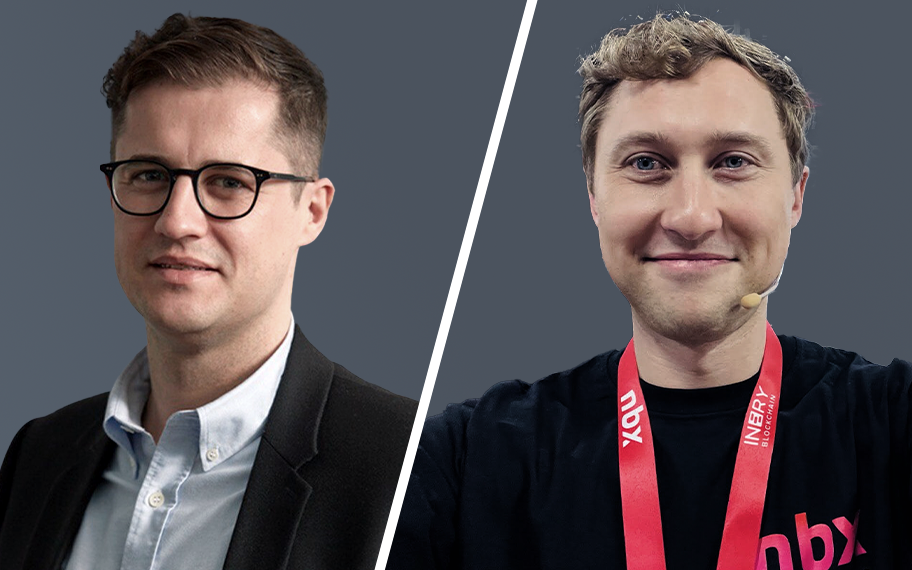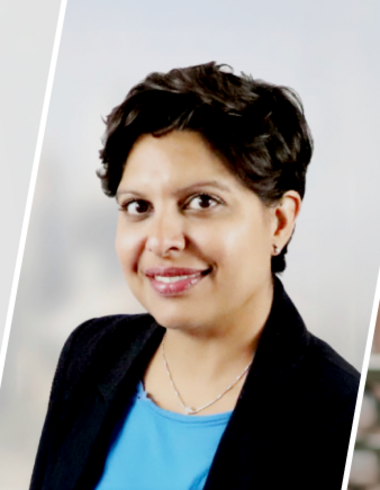Berlin & Warsaw: Connecting Blockchain Ecosystems
Berlin and Warsaw are not only linked by a close city partnership, but the two capitals have also developed into outstanding centers for blockchain and web3 applications over the last 10 years. Within the Next Block Expo 2023, we talked to Tom Kopera, co-founder of Next Block Expo (nbx) and Rafael Schultz, Managing Partner of BCP partners in Berlin and co-founder of DoxyChain in Warsaw. Together we gather insights into the sprawling blockchain ecosystems of Berlin and Warsaw, potential links between the two as well as name the start-ups to look towards 2024 and beyond.
Hello Tomasz, you are the founder of the Next Block Expo, can you tell us, how the idea came up to develop an event dedicated to web3/blockchain? And why did you decide to also organize a Berlin edition of this event? What is so special about Berlin in your opinion?
Tomasz: A few years ago, we decided to join forces with my current business partner Dawid Kustra. He’s been organizing crypto events for a few years already and after our collaboration came into fruition, we expanded the format into new types of content, built a new brand on top of my marketing expertise and Dawid’s event organization experience. That was also the moment when we decided to organize the event in Berlin as we believe the city is having lots of potential with a vivid community and numerous projects. Berlin is one of the biggest ecosystems for web3 in Europe yet still not having its flagship event. This city is associated with freedom and creativity – characteristics that became the foundation for the web3 movement.
Rafael, you are CEO of BlockchainPunk Lab which is based in Berlin, but you’re also co-founder of DoxyChain based in Warsaw. Why have you chosen Warsaw as the place for DoxyChain? What is so special about Warsaw in your opinion?
Rafael: Warsaw is the new digital gate of Europe. Examples of smart digital solutions like contactless shopping literally everywhere, parking tickets checked by robo scanners and instant banking transfers have been out there for many years, even before COVID. Additionally, Poland is a test field for new technologies, implemented by multiple large enterprises having their main back offices in one of the many skyscrapers in downtown Warsaw.
Besides that, the University of Warsaw grants access to a new generation of talent, and I was lucky to meet some students with great potential in 2018 - like the founders of Doxychain Gabriel Dymoski, Piotr Zelasko, and Marcin Lorenc. They identified the pain point of paper office work and non-existing trusted certificates. So Doxychain was born to solve this. And the digital gate of Europe works in both ways. What works in Poland, works across the EU, so Doxychain can operate from here at its best.
The Next Block Expo from December 4-5, 2023, had an exciting list of speakers, many of them from Poland. Tomasz, how do you see the development in Warsaw and Poland in general when it comes to web3/blockchain? Are there any communities you would like to mention?
Tomasz: The Polish blockchain community is totally thriving – every year it gives birth to new initiatives and what makes me proud is that even during the bear market there were lots of meetups and community activities. At nbx in Berlin we had representatives from communities including: Polish Blockchain Association, Degen House, Krypto Ekipa, Hajsoholicy, ThePolacy, Metamixer and many others.
Rafael, having a web3/blockchain business in Berlin and one in Warsaw – do you see any differences and specialities/particularities when it comes to web3/blockchain developments in the past years in Warsaw versus Berlin?
Rafael: Yes, there are a couple. But one thing they have in common, both places have a great local network of talents and business angels to start a new business. I lived in both countries and decided to found our company here in Berlin. The access to international developers and experts is quite high and it is easier to find potential investors. Berlin is home to many global web2 unicorns like Zalando, N26, and Hello Fresh. And when it comes to web3, you may find more than 200 blockchain companies, many foundations of the top 25 crypto currencies and a strong footprint of crypto VC‘s. Germany regulated Bitcoin very early as a taxable asset class and is today fully regulated when it comes to security tokens on polygon which you may use legally for your company or even list it with a ISIN and trade it on traditional markets. But competition in Berlin is huge, you need many resources to attract customers.
Warsaw on the other hand is a young market, still having lots of undiscovered nishes. Regulation on crypto is still not there yet, tokens are rather utilities then securities. MICAR, the new EU crypto regulation coming into place in 2024, will help Warsaw adopt the digitalization of assets on blockchain.
On that note: What are the web3/blockchain specialities or particularities in Warsaw?
Tomasz: Warsaw is in general full of blockchain developers and entrepreneurial spirit. It gives birth to numerous projects across various sectors of the web3 realm. Nevertheless, if I were to point out one of them, I’d bet on web3 gaming, since Poland has got a long-lasting gaming tradition.
Would you say Berlin and Warsaw go well together when it comes to web3/blockchain? If yes, why?
Rafael: I would say decentralized solutions always go well everywhere. We are in a borderless and free technology industry. So yes, Berlin and Warsaw go very well together, and both can even expand easier into industries across the globe. But also, both cities should have more intense founder connections, Berlin holds entrepreneurs who are acting a bit more traditional, influenced by the web2 use cases, while Warsaw entrepreneurs are making faster and more risky decisions. I’m looking for a stronger combo of Polish “make it happen attitudes” and German venture building patience.
Have any collaborations between companies from Berlin and Warsaw already emerged from the Berlin Edition of the Next Block Expo?
Tomasz: I believe there are many of them already, it’s just not visible publicly yet. I heard some insights from our exhibitors and community leaders. For a reason Internet Computer Protocol (ICP), one of the exhibitors at NBX, established their hubs both in Berlin and Warsaw.
Please name one Warsaw based web3/blockchain product/company and one from Berlin we should have on the radar.
Rafael: For Warsaw, please have a look into Uniqly.io. After a successful ICO in 2021 their founder Chris Perdek started to build quite an easy-to-use digital twin Fashion NFT solution. When it comes to Berlin, you may have a closer look at openQ.dev. It‘s the new developer relation CRM system, grown out of web3 and now scaling internationally across software companies.
Tomasz: One from Warsaw would be Elympics – they are building a protocol that extends existing blockchains with capabilities of social gaming with money competitions. A trend that I believe will transform web3 gaming from temporary hype into permanent new gaming category with sustainable economic model.
One from Berlin would be LUKSO as they attracted a really promising team of experts, remain very active in the space. Their founder (ex-Ethereum) Fabian Vogelsteller is very knowledgeable and charismatic – seen him on stage on couple occasions.
Thank you both for your time.




